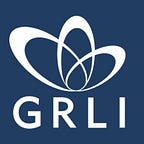Invitation to Co-Create an Inclusivity Index
GRLI Community invited to design, contribute and co-create an assessment tool for progress on diversity in Higher Education institutions
By Anicia Jaegler, Professor and Associate dean for inclusivity, KEDGE Business School
We’re pleased to share this invitation to co-create a new inclusivity index for higher education institutions from Anicia Jaegler, at Kedge Business School, a GRLI institutional partner. Contact Anicia Jaegler at anicia.jaegler@kedgebs.com to explore a collaboration.
Inclusivity is quickly becoming one of the most challenging current issues of higher education because of changing demographics, growth of emerging countries, geopolitical issues, new laws, and policies. Inclusivity is also having an impact on how successful higher education is at preparing students for the society and work environment of today and tomorrow. Emerging questions in the field include: ‘Does inclusivity improve student learning?’ (Milem, Chang and Antonio, 2005) and ‘Does it promote excellence?’ (Chang, 1999)?
To be able to track diversity and to evaluate its impact, it is necessary to measure diversity and its evolution. Kedge Business School is highly committed to promote inclusivity. As Associate Dean for inclusivity, I am in charge of developing a measurement tool. Based on existing works (Bensimon 2004’s dashboard; Booth and Ainscow, 2002 questionnaire), the goal is to develop an index to measure inclusivity.
In co-creating this tool, one of my starting assumptions is that all stakeholders of a higher education institution should be considered in the measurement: students, employees, alumni, and partners. Also, as a framework, the French legal framework defines 25 criteria of discrimination that can be grouped under four main dimensions: social openness, identity, gender and disability. Like the Positive Impact Rating (PIR) (Dyllick and Muff, 2020), the levels of inclusivity are not intended to be ranked but assessed. The development of the inclusivity index will enable higher education institutions to measure their progress on diversity, to stimulate a supportive and collaborative community of good practice, to design, implement and evaluate inclusive practices.
The figure below presents a framework to create the main indicators and the scoring principle, from the bottom up:
Invitation to Co-Create
To create a proof of concept, I propose that a group of 10 higher education organizations from different countries co-create and share initial data. I am pleased to invite you and your institution to join this first circle of higher education organizations. Together, we will co-design an inclusivity index to make an impact in our community and beyond.
I am open to all levels of involvement and partnership. On one end, you could simply provide your data and, according to your requirements, I provide the results, and the rating. Or, you are invited to co-create at all steps in the process or something in between. All options are possible, as pictured in the chart below.
To take the first step, please reach out to me at anicia.jaegler@kedgebs.com.
Bibliography
Bensimon, E. M. (2004). The diversity scorecard: A learning approach to institutional change. Change: The magazine of higher learning, 36(1), 44–52.
Booth, T. & Ainscow, M. (2002). Index for inclusion: developing learning and participation in schools. CSIE. Chang, M. J. (1999). Does racial diversity matter?: The educational impact of a racially diverse undergraduate population. Journal of College Student Development.
Dyllick, T., & Muff, K. (2020). A positive impact rating for business schools: Case study. Sustainability, 12(22), 9551.
Milem, J. F., Chang, M. J., & Antonio, A. L. (2005). Making diversity work on campus: A research-based perspective. Washington, DC: Association American Colleges and Universities.
Anicia Jaegler is Professor and Associate dean for inclusivity at KEDGE Business School. Contact her at anicia.jaegler@kedgebs.com to explore a collaboration to develop a new inclusivity measurement tool.
